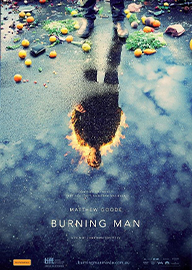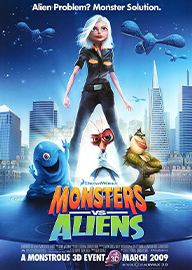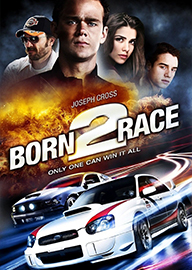Maari
- 6.4
- Action
- 2015
- 2h 18m
- PG-13
a high-energy Tamil action-comedy directed by Balaji Mohan, starring Dhanush and Kajal Aggarwal. Set in the vibrant streets of Chennai, it follows the stylish and fearless Maari — a small-time don whose charm, swagger, and heart define him. With stunning visuals, an electrifying soundtrack by Anirudh Ravichander, and a perfect blend of humor, emotion, and action, Maari remains one of Tamil cinema’s most entertaining and iconic gangster films.













Comments
0Reviews
0Summery
1Please sign in to comment.
Please sign in to review.
Maari (2015) begins like a storm — loud, vibrant, and unapologetically alive. The streets of Chennai pulse with rhythm, the sun blazes against graffiti-painted walls, and from the chaos emerges Maari, a man with aviator sunglasses, twirled mustache, gold chains, and a swagger that defines the very air around him. Dhanush doesn’t just play Maari; he becomes him. He walks like he owns the world, speaks with the rhythm of confidence, and smiles with mischief that hints at danger. Directed by Balaji Mohan, Maari is more than just a gangster story — it’s a living, breathing piece of cinematic energy that celebrates style, loyalty, friendship, and transformation.
The film paints Maari as both hero and anti-hero. He’s a small-time don ruling over his neighborhood with his signature swagger and street smarts. He’s feared and adored, hated by cops, envied by rivals, and worshipped by his friends. Yet beneath his larger-than-life persona lies a man built by his past — his arrogance born from survival, his humor masking vulnerability. Balaji Mohan crafts him not as a villain or saint, but as a man of contradictions — charming yet ruthless, confident yet broken, impulsive yet strangely loyal. The opening sequences burst with energy: pigeons flutter across rooftops, Maari rides his bike through crowded lanes, flipping his shades with effortless cool, while Anirudh Ravichander’s electrifying background score throbs like a heartbeat. The song “Don’u Don’u Don’u” becomes the anthem of his existence — playful, confident, and unforgettable.
Maari’s rule is both feared and respected. He collects his share from local businesses, settles disputes his own way, and believes in one thing above all — his name. He’s the kind of man who doesn’t back down from a fight, whether it’s with gangsters or corrupt cops. Yet, for all his power, Maari’s world is small, tightly held together by loyalty and friendship. His closest allies, Sanikkizhamai (Robo Shankar) and Adithangi (Kalloori Vinoth), bring comic relief and heart. Their bond is rough-edged but real — men who’ve shared both bruises and laughter. Together they rule the streets, prank their rivals, and live by an unspoken code: never betray one another. Enter Araathu Aanandi (Kajal Aggarwal), the new face in the neighborhood — smart, fearless, and determined to bring Maari down. She works with the police, pretending to be interested in him to gather evidence for his crimes. What begins as deception slowly evolves into understanding. As she spends time with Maari, she begins to see beyond the tough exterior — into the lonely man beneath the gold chains and arrogance. Their chemistry crackles — she challenges him, mocks his ego, and softens his edges. Kajal brings a radiant balance to Dhanush’s ruggedness, making their on-screen dynamic both comedic and endearing.
Meanwhile, Maari’s enemies circle closer. The corrupt police officer Arjun (Vijay Yesudas, in a menacingly composed performance) seeks to exploit Maari’s downfall. Arjun represents the system’s cruelty — polished on the outside, rotten within. He frames Maari, manipulates circumstances, and orchestrates his arrest. Maari, betrayed and cornered, ends up behind bars, his empire slipping away. Yet, even in prison, his spirit remains unbroken. He smirks through interrogations, mocks authority, and holds on to his pride. His time in jail becomes a period of reflection, but not redemption — because Maari doesn’t repent; he evolves. When he finally steps out, the world has changed, but his fire hasn’t dimmed. The second half of Maari shifts gears from style to substance. The betrayal by Arjun becomes personal — not just about power, but about dignity. Maari’s revenge isn’t driven by vengeance alone; it’s about reclaiming his name and proving that street honor is stronger than institutional deceit. Dhanush plays this arc with commanding subtlety. His eyes harden, his tone deepens, and his swagger now carries a shadow — the mark of a man who has seen the edge of defeat and refused to fall. The face-offs between Dhanush and Vijay Yesudas are cinematic fireworks — tension-filled, intense, and beautifully choreographed. The action sequences are raw, kinetic, and infused with character rather than empty spectacle. Every punch Maari throws feels personal, every smirk carries a story.
Balaji Mohan balances violence with humor, style with soul. The streets become a living character — colorful, dangerous, and full of rhythm. The pigeons that Maari cares for become a poetic metaphor — free, fierce, and untamable, just like him. The film’s vibrant color palette — golds, reds, and blues — enhances its pop-comic energy. The dialogues are crisp, witty, and rooted in Tamil street slang, adding authenticity and attitude. “Naan romba nallavan illa, aana romba kettavanum illa” (“I’m not a very good man, but I’m not all bad either”) — this line defines Maari’s essence. In the emotional core of the film lies the idea of perception — how society labels men like Maari as criminals without understanding their world. He’s not a saint, but he’s not evil either; he’s a survivor of a broken system. Balaji Mohan humanizes his anti-hero without sanitizing him. He lets Maari’s flaws breathe — his impulsiveness, his arrogance, his occasional cruelty — and still makes the audience root for him. That’s where Maari succeeds: it makes us fall in love with imperfection. The romance between Maari and Aanandi evolves organically. She goes from despising him to seeing his humanity, from deceiving him to defending him. When she stands up for him against Arjun, the film delivers one of its most satisfying emotional payoffs. Their connection is not traditional romance — it’s built on respect, laughter, and defiance. Kajal’s performance brings warmth to the narrative, grounding Dhanush’s fiery energy with gentle compassion.
As the film races toward its climax, Maari reclaims his empire with style. The final showdown is quintessentially cinematic — rain-soaked streets, flashing lights, and the echo of Anirudh’s thundering music. Dhanush dominates the frame — not as an invincible hero, but as a man who refuses to be erased. When Maari walks away from the wreckage, his shades glinting, pigeons soaring overhead, the message is clear: you can’t cage the wind. Cinematically, Maari thrives on its energy. It’s fast, flamboyant, and fearless. Balaji Mohan’s direction is slick, using slow-motion, whip pans, and rhythmic cuts to make every scene pop with attitude. Anirudh’s soundtrack doesn’t just complement the visuals — it defines them. Each beat syncs with Maari’s movements, every track amplifies the tone. The songs aren’t mere interludes; they’re extensions of the characters’ moods. “Oru Vidha Aasai” captures Maari’s loneliness, while “Maari Thara Local” celebrates his untamed charisma.
At its heart, Maari is a film about identity — about being unapologetically oneself in a world that demands conformity. Maari’s arrogance, humor, and compassion are all sides of the same coin — survival. He’s the embodiment of the local hero archetype — flawed, loud, but ultimately human. Dhanush’s performance is magnetic; he brings every frame alive with kinetic intensity and playful improvisation. His body language, his comic timing, his vulnerability — all coalesce into one unforgettable character. When the dust settles and the city lights fade, Maari remains — a symbol of defiance, freedom, and self-belief. He’s the rogue with a heart, the troublemaker who makes you smile even as he breaks rules. Balaji Mohan’s Maari stands as a celebration of Tamil pop cinema at its most colorful — an ode to attitude, rhythm, and unapologetic self-expression.